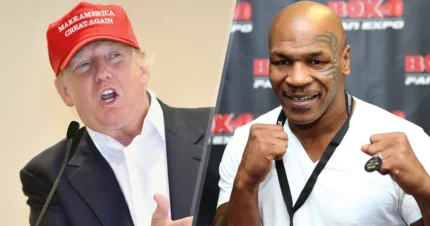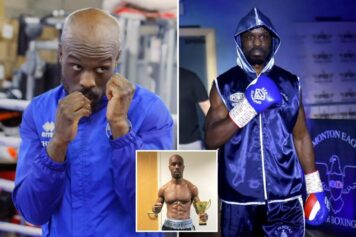Leon Spinks passed away yesterday at the age of 67 years old in Henderson, Nevada. According to the Four Quarters of Life theory by Chuck D, he wasn’t even midway through his fourth quarter.
However, Leon Spinks truly lived.
https://www.youtube.com/watch?v=lzu7mwyFu2E
For many, his life highlight is encapsulated in his 1978 victory over Muhammad Ali to claim the heavyweight championship.
It was the first Rudy Ruttiger moment in boxing, way before Andy Ruiz but more impactful because it was against “The Greatest.”
Spinks lived the Black American underdog story. Not just because he entered the ring an unranked boxer with only seven professional fights under his belt.
Spinks was born in St. Louis, Missouri, in 1953, when Black people wouldn’t be able to vote until over a decade later when the Voting Rights Act of 1965 passed.
At the age of twenty, he was in the Marines as part of the forgotten brigade of Black men who served and counted as full citizens until later. During the Vietnamese War, the generation lost was sober for the Black community, and Spinks was a survivor.
Spinks was a phenomenal amateur boxer. He won numerous medals in the light heavyweight division. At the inaugural 1974 World Championships, he won the bronze, silver at the 1975 Pan American Games, and gold at the 1976 Summer Olympics.
It was there that his brother, Michael Spinks, also won middleweight gold.
Of the seven fights he had before the first Ali pairing, five ended in knockouts before upsetting the boxing world with a split decision victory over “The Greatest.”
Spinks was only 24 years old. Ali was a ripe 36 years old with 57 total fights but was on a 14-fight win streak.
Ali had wins over Ken Norton, Joe Frazier, and Earnie Shavers before Spinks took his WBA, WBC, and The Ring heavyweight titles.
Spinks survived a 15th-round flurry from Ali, even dishing out his own before the round ended.
The win made Spinks the only fighter to take a title from Ali in the ring, memorably exclaiming, “I’m Not The Greatest. Just the latest.”
Leon Spinks lost his battle to prostate cancer, leaving behind a legacy that is more than a footnote in Black History.
It was a perfect example of the Black underdog experience.



